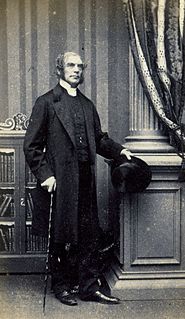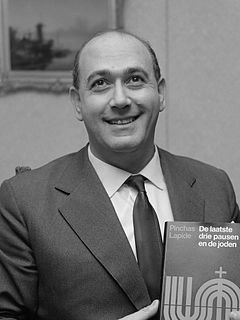A Quote by David Kirk
When Jesus calls his disciples 'brothers' and 'friends', he is contradicting general Jewish usage and breaking through into a new concept of brotherhood which is not tribal, but open to any person.
Related Quotes
Jesus never tried to hide his loneliness and dependence on other people. He chose his disciples not as servants but as friends. He shared moments of joy and grief with them, and asked for them in times of need. They became his family, his substitute mother and brothers and sisters. They gave up everything for him, as he had given up everything for them. He loved them, plain and simple.
For those who have already experienced the grace of Almighty God through faith in the Lord Jesus Christ, prayer becomes the catalyst for fellowship with the Lord of our souls, redeemed by his blood. By tapping into the channel by which we commune with the One who calls his children “friends,” we can receive his strength in our weakness; his guidance in our steps; and his mercy when we stumble along life's path.
The messengers of Jesus will be hated to the end of time. They will be blamed for all the division which rend cities and homes. Jesus and his disciples will be condemned on all sides for undermining family life, and for leading the nation astray; they will be called crazy fanatics and disturbers of the peace. The disciples will be sorely tempted to desert their Lord. But the end is also near, and they must hold on and persevere until it comes. Only he will be blessed who remains loyal to Jesus and his word until the end.
The Gospel of Thomas, greatly favored in some circles, is ignored by archaeologists, primarily because it exhibits no verisimilitude. It tells us nothing about the historical Jesus and the world he and his disciples lived in. I've heard it said, that if all we had was the Gospel of Thomas, would we even know that Jesus was Jewish?
Fortunately Jesus didn't leave [the disciples]-or any of us-without hope or direction. Where we fail, Jesus succeeded. The only One who as able to recognize and follow His purpose from the beginning was Jesus. He alone was able to obey consistently and please God completely. And His divine mission was to make a way for each of us to do the same.
At this time there was a wise man who was called Jesus. And his conduct was good, and [he] was known to be virtuous. And many people from among the Jews and the other nations became his disciples. Pilate condemned him to be crucified and to die. And those who had become his disciples did not abandon his discipleship.
He will be the best Christian who has Christ for his Master, and truly follows Him. Some are disciples of the church, others are disciples of the minister, and a third sort are disciples of their own thoughts; he is the wise man who sits at Jesus' feet and learns of Him, with the resolve to follow His teaching and imitate His example. He who tries to learn of Jesus Himself, taking the very words from the Lord's own lips, binding himself to believe whatsoever the Lord hath taught and to do whatsoever He hath commanded-he I say, is the stable Christian.
I accept the resurrection of Easter Sunday not as an invention of the community of disciples, but as a historical event. If the resurrection of Jesus from the dead on that Easter Sunday were a public event which had been made known...not only to the 530 Jewish witnesses but to the entire population, all Jews would have become followers of Jesus.
Dig: I'm Jewish. Count Basie's Jewish. Ray Charles is Jewish. Eddie Cantor's goyish. B'nai B'rith is goyish; Hadassah, Jewish.
If you live in New York or any other big city, you are Jewish. It doesn't matter even if you're Catholic; if you live in New York, you're Jewish. If you live in Butte, Montana, you're going to be goyish even if you're Jewish.
the life of Jesus recapitulates key elements in the earlier story of Israel. For a moment, as Jesus stands on the mountain giving the famous sermon, he is Moses. For a moment, answering his critics about his actions on the sabbath, he is David. For a moment, as he calls and names the twelve disciples, he is perhaps Jacob, bringing the twelve patriarchs into the world. For a moment, healing the sick and raising the dead, he is Elijah or Elisha. And so on. In the transfiguration he actually meets Moses and Elijah.
I think many thinkers and activists, even in the Islamist parties like the Muslim Brotherhood, and the people who left the Muslim Brotherhood to follow Abou el-Fatouh, these people do have an understanding that the relationship between religion and the state must be re-thought and re-assessed. They're not going to use the concept of secularism in any straightforward way, because the concept of secularism is still far too loaded in that part of the world.
It is fruitless to search for a single musical style, or even any blend of musical styles, that can assist all Christians with true worship. The followers of Jesus are a far too diverse group of people-which is exactly as it should be. We need, rather, to welcome any worship music that helps churches produce disciples of Jesus Christ.
Like every man who appears at an epoch which is historical and rendered famous by his works, Jesus Christ has a history, a history which the church and the world possess, and which, surrounded by countless memorials, has at least the same authenticity as any other history formed in the same countries, amidst the same peoples and in the same times. As, then, if I would study the lives of Brutus and Cassius, I should calmly open Plutarch, I open the Gospel to study Jesus Christ, and I do so with the same composure.






































